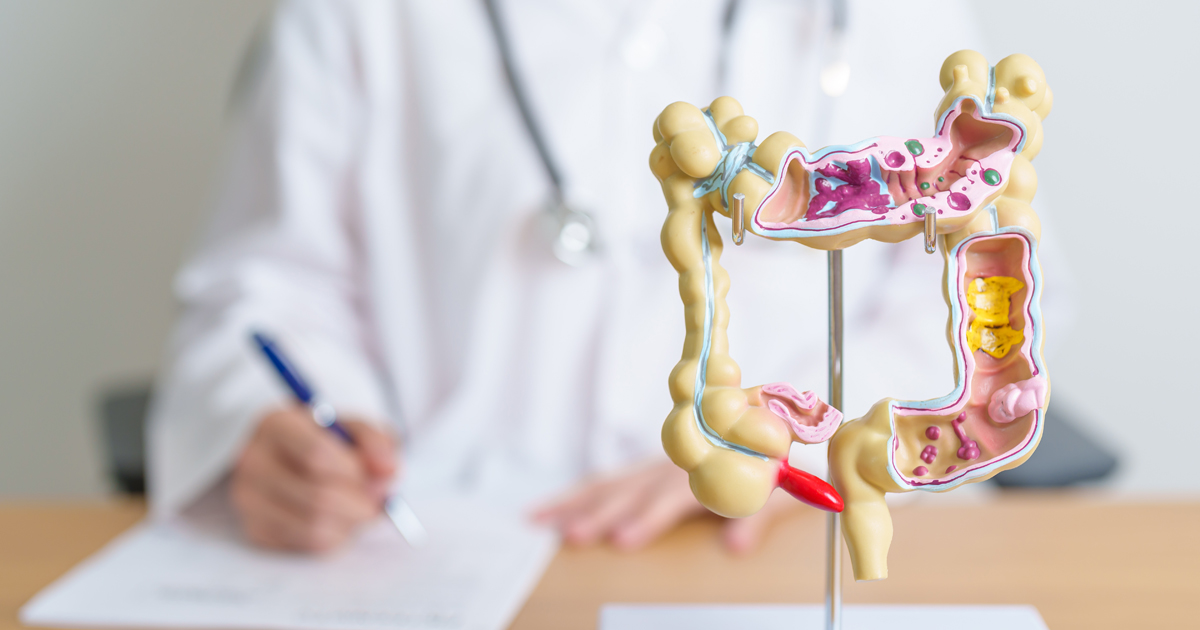A Guide to Colon Cancer Screening and Surgery at Saint Vincent Hospital

Taking care of your colon is an important part of staying healthy. At AHN Cancer Institute at Saint Vincent Hospital, we’re here to help every step of the way — from preventive screening to advanced treatment for colon cancer. Our team uses the latest tools and technology to find problems early and treat them with care.
What increases your risk for colon cancer?
Colon cancer happens when cells in the colon or rectum grow in an abnormal way. We don’t always know why this happens, but there are some factors that may increase your risk for colon cancer:
- A family history of colon or rectal cancer
- Being older, especially over age 50
- Being obese or overweight
- Using tobacco products or smoking
Colon cancer symptoms aren’t always easy to spot, but there are signs to look out for that something might be wrong:
- Bleeding when you go to the bathroom
- Changes in your bowel habits, like going more or less often
If you notice these signs, it might be time to reach out to your doctor to get your colon checked.
Getting your colon checked
A colonoscopy is a test that lets doctors look inside your colon to check for signs of cancer or other health problems.
Most people should start getting colonoscopies every 10 years beginning at age 45. If you have symptoms of colon cancer or a family history of certain gastrointestinal conditions, your gastroenterologist may recommend starting sooner.
“Colonoscopies are one of the best screening tools available,” said Philip D. Kondylis, MD, colon and rectal surgeon at AHN Saint Vincent. “They help us get a clear visual of the entire colon and rectum, so we can catch health issues early and stop them from spreading.”
If you’re referred to AHN Saint Vincent for a colonoscopy, you’ll need to prepare for it by stopping solid foods 24 hours before the procedure. Your doctor will give you instructions to drink a powder mix the day before your colonoscopy. The powder can be mixed with fluids like Gatorade or broth to help with the taste. This will help clear out your colon so your doctors can examine it more easily during the procedure.
If you’re unable to drink the powder mix, taking pills for colonoscopy prep is another option that you can talk with your doctor about.
During the colonoscopy, doctors will use a long tube with a camera and light to check your colon. They look for swelling, tissue irritation, polyps (growths), or signs of cancer.
What are polyps and how are they removed?
Polyps are clumps of cells that form on the lining of your colon.
There are different types of polyps, but most of them are non-cancerous. If your doctor finds polyps on your colon during a colonoscopy, after removing them, they will:
- Send the polyps to a lab for a biopsy (taking a sample of cells and tissue) to test for cancer.
- Discuss surgery or other treatment options for removing large polyps.
Preparing for treatment
Before deciding on a treatment method, your doctors will do a CT scan to take images of your colon. If they find signs of cancer, they may discuss doing surgery or explore endoscopic mucosal resection (EMR) as a less invasive method for removing your polyps without surgery.* EMR is similar to a colonoscopy, and patients can go back to their normal routines the day after the procedure.
Your care team will work closely with you to decide if surgery is the best course of treatment for your care. To prepare for surgery, your doctor may suggest:
- Quitting smoking
- Eating nutritious meals
- Taking regular walks
“Walking helps the body’s digestion and bowel functions,” said Dr. Kondylis. “The more patients move their bodies before surgery, the easier it will be to get back on their feet after.”
What happens during surgery?
Surgery for colon cancer treatment is minimally invasive and usually lasts 2–3 hours. Your team at AHN Saint Vincent will give you medication so you are asleep and don’t feel pain during the procedure.
When it’s time to operate, they will open your abdomen and remove the cancerous part of your colon.
Ensuring a smooth recovery
You will stay in the hospital for 3–4 days after surgery, but it may take about a month to fully recover.
Two weeks after surgery, your doctors will follow up with you to:
- Make sure you’re following guidelines for colon cancer surgery recovery, like taking walks and avoiding heavy lifting, pushing, and pulling movements.
- Discuss whether the cancer was successfully removed.
- Discuss working with AHN dieticians and physical therapists to maintain your health.
Taking steps for better colon health
Whether you need a routine screening or advanced treatment, AHN Cancer Institute at Saint Vincent Hospital is here to support your colon health. Learn how to take the next step in preventing or treating colon cancer.
Source: Can large colon polyps be removed without surgery? uchicagomedicine.org.
About Philip D. Kondylis, MD
Philip Kondylis, MD, is a colon and rectal surgeon with AHN Surgery Institute. He is skilled at colorectal surgeries and pelvic re-operative and revisional surgery. His expertise includes pelvic floor and bowel dysfunction and cancer prevention, with a modern approach to traditional proctology.
Having expert, centralized care close to home is so important to patients and their families when they’re at their most vulnerable. Patients can access all the highly skilled doctors and technologies they need at the AHN Cancer Institute at Saint Vincent Hospital. If you’re in Erie and you have cancer, you have us.

